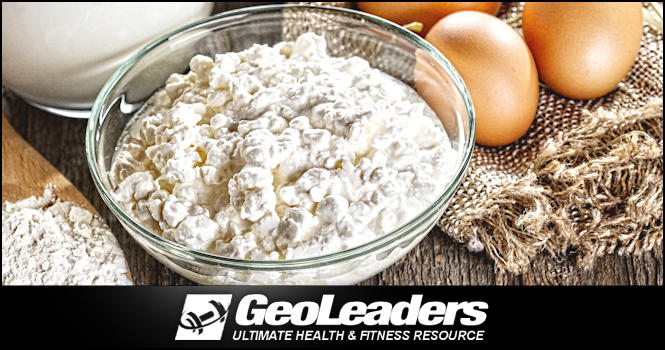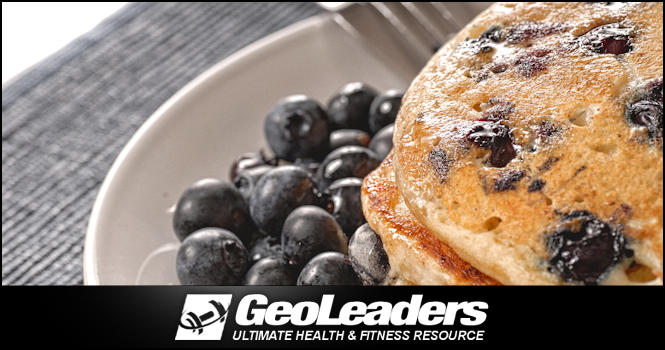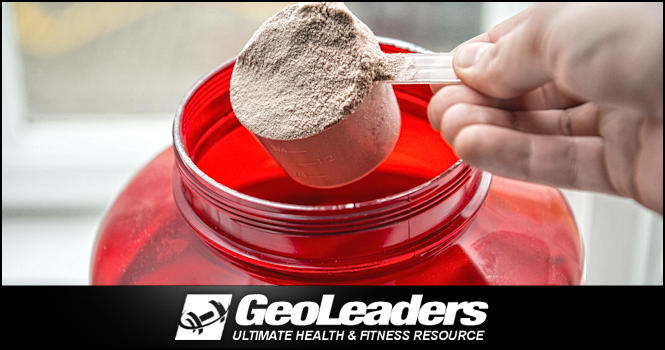If you’re a hard gainer and want to maximize your gains in the gym, you need to know what to eat to pack on the mass. Here’s a look at what to eat to gain muscle fast.
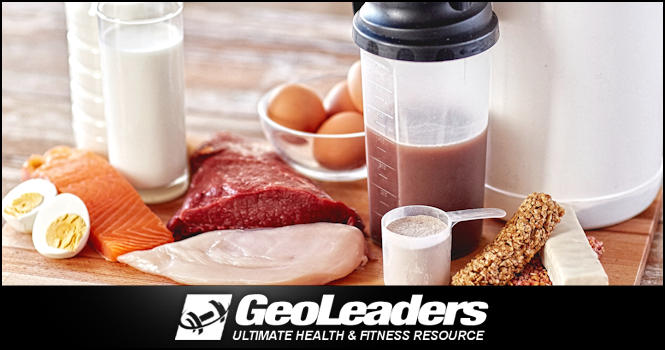
What should you eat to gain muscle?
That’s a question every novice lifter wants to know and an important question at that.
That fact is, nutrition makes up about 60-70% of your success in gaining muscle.
That’s why it’s extremely important to know what and how to eat.
What Should You Eat To Gain Muscle Fast?
In order to pack on lean muscle mass, your body uses three main nutrients from the foods you eat.
Those three nutrients are proteins, carbohydrates, and fats.
Each one of these components has an important role in building muscle and in this article, we’ll go into details.
1. Muscle Building Protein
As far as nutrition goes, protein is probably the main nutrient that comes to mind when you think about muscle building and mass gain.
Proteins are made up of different chains of building blocks called Amino Acids.
These amino acids are bonded or ‘chained’ together to make different kinds of proteins which are essential for muscle growth and repair.
Types Of Protein
There are two types of proteins, “complete proteins” and “incomplete proteins”.
Complete proteins have all eight amino acids that human beings don’t naturally produce.
On the other hand, incomplete proteins lack all of the essential amino acids or at least contain them in small varying portions.
In the body, humans can make use of all the proteins we consume to synthesize more protein.
However, our cells also make their own protein and we need not focus on these types of proteins as they are less essential to our growth.
Best Sources Of Protein
So what types of protein should you eat to gain muscle?
Animal-derived sources are some of the best foods to build muscle because they contain the amino acids of “complete proteins”.
Plants are rich in varying types of amino acids but are generally regarded as “incomplete”.
The best thing to do in order to cover all bases is to consume a variety of proteins from different sources.
This will allow you to get “the best from the best” so to speak.
Your body will extract the good amino acids from each different type of food to power your growth and health.
Best Protein Sources
In general, when you are looking to gain lean muscle, any animal source of protein is best.
Some great examples of complete proteins are:
- Eggs
- Lean meats
- Fish
- Poultry
- Milk
- Cheese
- Whey
So the bulk of your protein intake should come from the types of foods listed above.
Why Is Protein Important?
When you are working hard in the gym, you are breaking down muscle tissue.
Your body realizes that your muscles have been stressed and need to repair and adapt to be able to handle future stress.
It adapts by making the muscle fibers bigger, stronger, and more efficient.
So the time you are actually out of the gym “recovering” from your workout, your muscles need the proper nutrition to heal.
Amino Acids (proteins) are the necessary nutrients needed to repair those muscles so the next time you get in the gym you can lift even more weight.
So it is imperative that you get the proper protein to allow your muscles to grow.
2. Muscle Building Carbohydrates
Although carbs have been getting a bad rap lately, they are still important to gaining muscle.
When pumping iron in the gym, carbohydrates function as your main source of energy for your lifts.
Carbs also provide energy for simple activities like walking up the stairs to energy-intensive exercises like HIIT.
As a matter of fact, your body prefers carbohydrates over fat and protein to use as fuel.
Types of Carbohydrates
For the sake of keeping this article simple, we’re going to look at the two main types of carbohydrates: Simple and complex.
Simple Carbohydrates
Simple carbohydrates are simple sugars that are absorbed into the bloodstream quickly as glucose.
Simple carbs are always an immediate source of fuel for your body to use, so they are popularly taken immediately before a workout.
Some examples of simple carbohydrates are:
- Fruit
- Honey
- Brown sugar
- Dextrose
- Maltodextrin
Complex Carbohydrates
Complex carbohydrates are longer-chain combinations of simple sugars.
It takes the body more time to digest and break them down for absorption.
The benefit is that they are released slowly and supply the body with energy for longer periods of time.
Some examples of complex carbs are:
- Pasta
- Cereal
- Whole grains
- Oats
- Vegetables
Make note that it is important to eat the proper type of carbohydrate at the right time.
This ensures that you maximize your energy levels according to the different tasks you have at hand.
A Warning About Carb Intake
There is a downside to carbs though.
Consumption of too many carbohydrates leads to your body storing the excess energy as fat.
Carbohydrates themselves are not fattening, however, only if you eat too many.
With that said, aim to consume a proportionate amount of carbohydrates depending on your fitness goals and daily activities.
For example, a cutting diet consists of high protein intake and low carbohydrate intake (at certain times) to shed fat while building lean muscle mass.
3. Muscle Building Fats
Contrary to popular belief, fats are very important and play a big role in your health.
There are four types of fats:
- Monounsaturated fats
- Polyunsaturated fats
- Saturated fats
- Trans fats
Not all fats are good for you, so there are good fats and bad fats.
The “good fats” protect your heart, fuel your brain, optimize hormone levels, and support your overall health.
Good fats help to manage your mood and keep your brain and nervous system functioning at high levels.
Bad fats do the opposite.
Bad fats spike bad cholesterol and triglyceride levels, increasing your risk of different types of diseases.
So which fats should you eat for optimum muscle growth?
The good ones, of course!
Unsaturated Fats
Monounsaturated and polyunsaturated are types of good unsaturated fats.
Some examples are:
Oils
- Olive oil
- Canola oil
- Sunflower oil
- Peanut oil
- Avocado oil
Nuts and Seeds
- Natural peanut butter
- Nuts
- Olives
- Sunflower seeds
- Sesame seeds
- Pumpkin seeds
- Flaxseed
Fatty Fish
- Salmon
- Tuna
- Mackerel
- Trout
- Sardines
Saturated Fats
Recent studies have turned the tables and shown that saturated fats are actually not that bad after all. [1], [2], [3]
Saturated fats are essential for maintaining optimal hormone levels such as testosterone.
This is why the diets of classic bodybuilders like Vince Gironda included whole milk, eggs, butter and lots of red meat.
Some examples are:
- Butter
- Whole milk
- Heavy cream
- Coconut oil
Trans Fats
Trans fats are considered “bad fats” and should be avoided at all costs.
Some examples include:
- Cookies
- Muffins
- Cakes
- Crackers
- Chips
- Chocolate bars
- Fried foods
It’s all about gaining muscle the healthy way, so you need to eat healthily.
This means that you need to be conscious of avoiding the “bad fats” and include healthier choices in your diet.
If you are a novice, it can be tricky to know what foods are good or bad, so be sure to read the labels of the foods you buy.
Doesn’t Eating Fat Make You Fat?
A quick note on the theory that “eating fat makes you fat”.
Eating too much of the “bad fats” makes you fat.
Eating good fats in accordance with your daily requirements is healthy for you.
How much fat is too much fat?
It is different for everyone and there are varying opinions on it.
Just be conscious of the types of fats you are eating which will go a long way to living a healthy life.
Aside from proteins, if you eat too many carbohydrates or fats your body will store them as excess fat.
But what actually causes most people to become obese is the excess consumption of carbohydrates.
Carbs are your body’s preferred method of storing and using energy, not the fats you consume.
Final Thoughts On What To Eat To Gain Muscle
In the end, a good muscle-building diet will consist of varying amounts of complete proteins, complex carbs, and healthy fats.
It may take some time to research and get a good idea of which types of food will have the best nutrient profile for your fitness goals.
Regardless of whichever muscle-building diet plan you choose, a program high in protein will be a given for muscle-building.
Further Recommendations
An anabolic diet is an excellent way to reach your fitness goals fast if building muscle and losing fat is your goal.
Dave Ruel has actually developed a cookbook that completely takes the guesswork out of nutrition for you.
The goal of his cookbook, Anabolic Cooking, is to take care of the headache of researching food and finding meals to cook.
The Anabolic Cookbook contains over 200 delicious recipes and completely takes care of what to eat to gain muscle.
He created it to save you time and make eating while muscle-gaining fun.
This is definitely a worthwhile investment since nutrition is such a big deal when it comes to mass gaining.
Having a resource like this makes it super simple to know what to eat.
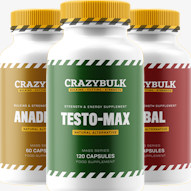
#1 RATED STACK FOR EXTREME MUSCLE GAINS!
Overall Rating: ★★★★★ (5/5) ✔ In Stock
Grab Today’s BEST DEAL And SAVE BIG On Our #1 Rated Muscle-Building Stack For Extreme Gains!
Transparency Disclosure: Some of the links in this post are affiliate links. This means we may make a small commission on purchases at no extra cost to our readers.
